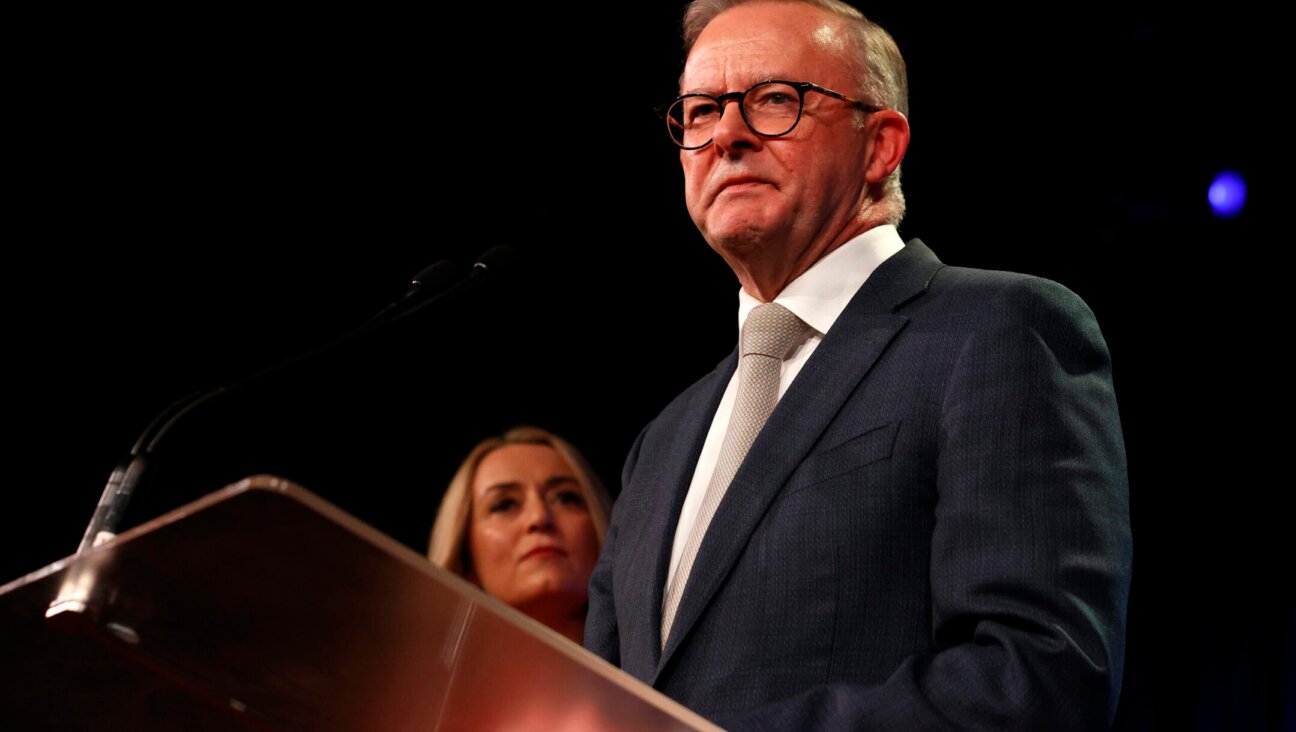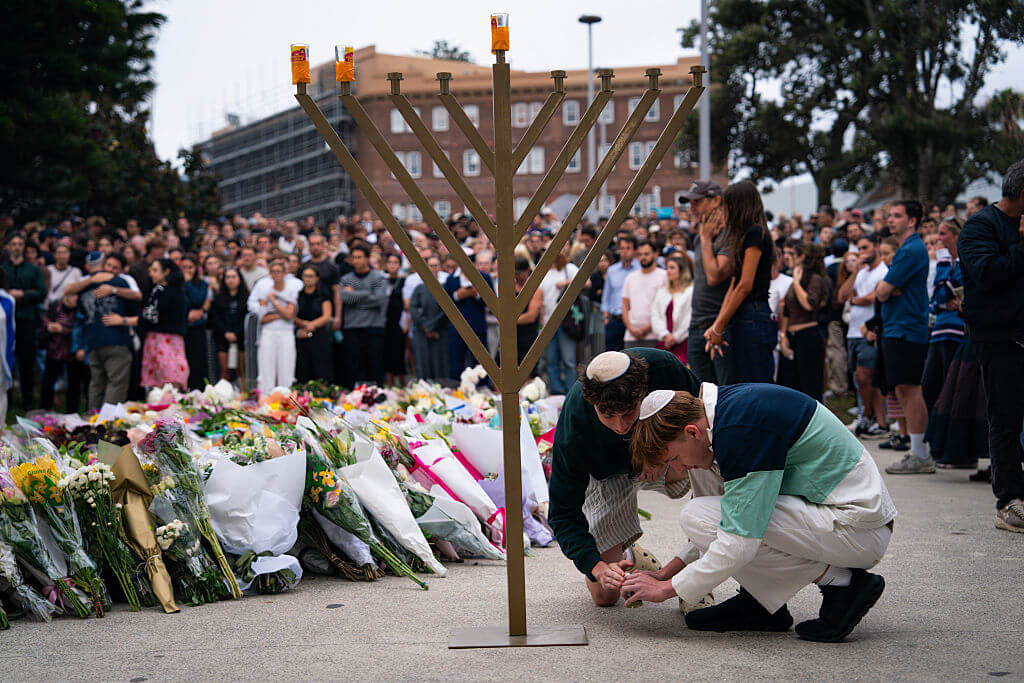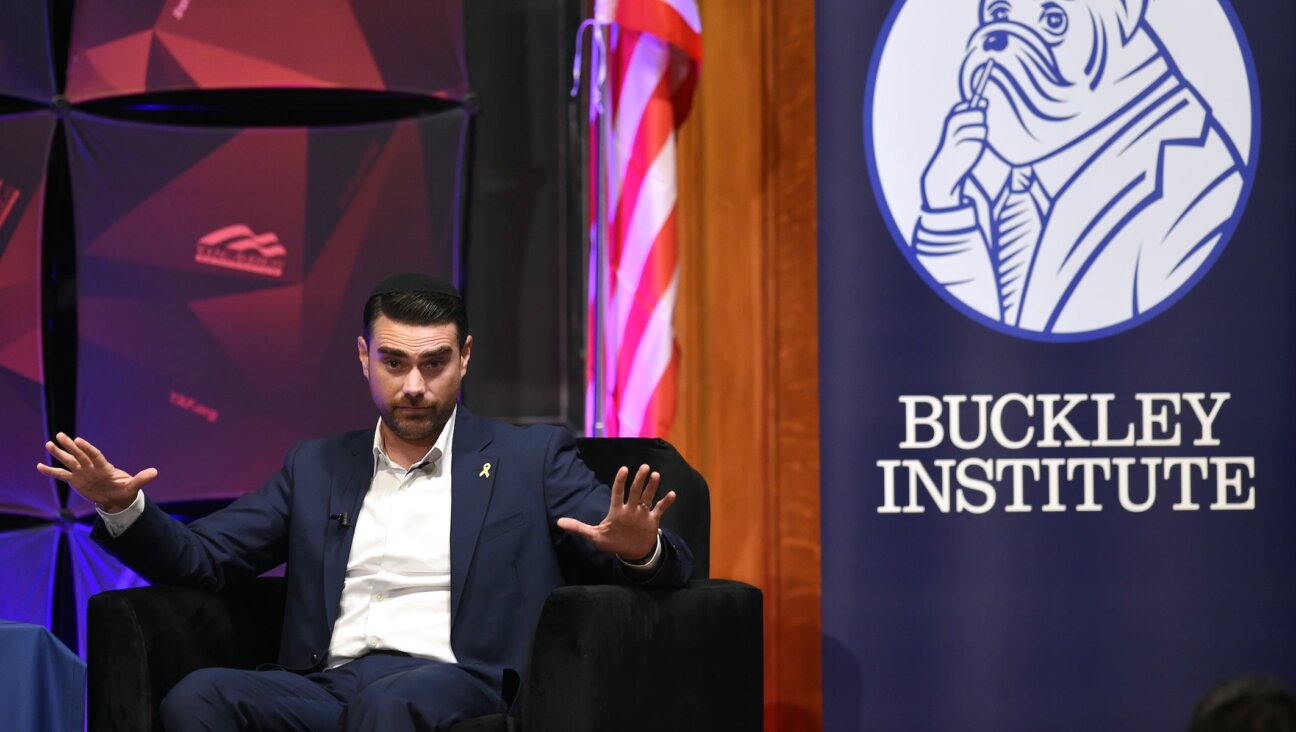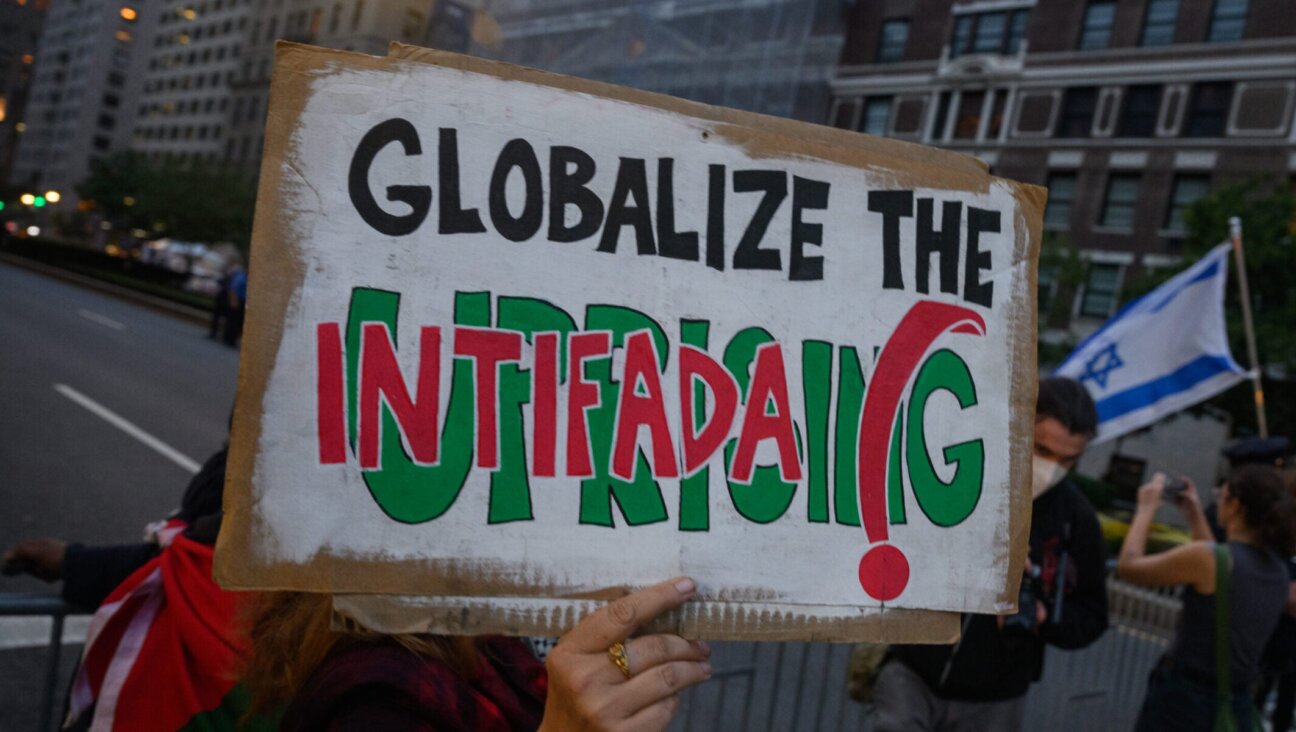Baker Panel To Avoid Calls for Peace Push
The bipartisan study group on Iraq co-chaired by former secretary of state James Baker will likely call for American engagement with Iran and Syria, but sources familiar with the process say there are no plans to push for a stepped-up role of the United States in resolving the Israeli-Palestinian conflict.
Israeli officials have been privately expressing alarm over the influential role that Baker — who during the first Bush administration famously butted heads with Jerusalem over settlements and peace talks — is expected to play in crafting Middle East policy following the midterm elections next week.
Congress mandated the Iraq Study Group, co-chaired by Baker and former Democratic congressman Lee Hamilton, to come up with a strategy for success in Iraq and for maintaining stability in the region. The committee’s report, expected no earlier than next month, will deal not only with military actions needed in Iraq but also with the implications of the war on the entire region.
The fear in some pro-Israel circles is that Baker and Hamilton, who have both previously stressed the importance of achieving a comprehensive Israeli-Palestinian peace settlement, would propose a formula that would implicitly require White House pressure on Jerusalem. But sources close to the study group, and experts who advised the committee on the regional policies, all say that the report will not urge a change of course on the Israeli-Palestinian conflict and will not advocate a more active role for the United States in brokering peace in the Middle East.
“It simply won’t be in there,” said one of the sources, who asked to remain anonymous. The source pointed to the committee’s guidelines that prohibit discussing the recommendations with the press. “There is no question of linkage. They can talk about the Israeli-Palestinian issue, but it is not viewed by the committee as linked or resonating on Iraq.”
Yet some of the experts who advised the Baker-Hamilton group believe that the American role in the Israeli-Palestinian conflict cannot be ignored when trying to address the situation in Iraq. Professor Shibley Telhami of the University of Maryland, a member of the Expert Working Groups providing the committee with professional advice, told the Forward that “it is very difficult to think of Iraq in a way that separates between Iraq and the other interests of the U.S. in the region.” Telhami, who stressed that he was speaking for himself and not for the committee, added that even if the report is careful not to link the situation in Iraq and the Israeli-Arab conflict, it is still important to look at the ways of solving the Iraqi problem “in the sense of a broader Middle East policy.”
Another member of the experts group is Jon Alterman, director of the Middle East program at the Center for Strategic and International Studies. Alterman said that while it is true that convincing Iraq’s neighbors to play a positive role will require an effort of the United States on the Israeli-Palestinian front, he does not see any indication that the matter is a major issue on the table.
“Cooperation with the regional partners will require a sign of effort, not necessarily a sign of progress,” he said.
Alterman, like all other committee-connected experts and sources contacted by the Forward, dismissed any Israeli concern of a sudden shift in American policy in the region in a way that would force Israel into an agreement it opposes. “The idea that Israel might be sold out after the report is out is fanciful,” Alterman asserted. Telhami said, “It is not a reasonable fear.”
The Iraq Study Group is supported by four groups of experts who advise the committee on security, economy, political development and strategic environment. The strategic environment group deals with Iraq’s neighbors and the ramifications of the situation in Iraq on the broader region. Members of this expert group represent a wide array of views on the Middle East, from leading American think tanks and research institutes.
Jewish activists stressed this week that it is too early to judge the work of the committee and that there is no sign that it will have negative implications for Israel. Though the Jewish community is generally critical of Baker, dating back to his stint as secretary of state, pro-Israel activists say that they do not fear any bias in his report. “You need to be paranoid to fear any change of policy towards Israel by this administration,” said Morris Amitay, former director of the American Israel Public Affairs Committee and a supporter of the hawkish Jewish Institute for National Security Affairs.
Privately, Israeli officials have been expressing concerns. But in interviews, they adopted a more confident line. Israel’s outgoing ambassador to the United States, Danny Ayalon, told the Forward that he does not foresee any shift in American policy during the final two years of the Bush administration. “It will be more of the same,” Ayalon said, regarding the American role in the region. “If the Americans will not see any progress on the Palestinian side, they will not push forward a new initiative.”
According to Ayalon, who will be replaced in less than two weeks by Salai Meridor, the Bush administration sees Israel as a model of success in terms of Bush’s democracy agenda, and thus will not attempt to force Israel to take measures with which it disagrees. Another Israeli official said, “What matters is what President Bush does, and the committee will not make any recommendations that are in contrast to Bush’s policy.” Ayalon, while more subtle in his choice of words, also said that he does not sense any winds of change in the administration, based on his knowledge of the way President Bush and Secretary of State Condoleezza Rice work.
“They will not bang their heads against the wall” trying to force a solution to the conflict, Ayalon said.
Even if the Baker-Hamilton committee avoids the Israeli-Palestinian issue, the widely held assumption is that the committee will call for an end to the diplomatic isolation of Syria and to the engagement with the regime of Bashar Assad. In an interview with ABC News last month, Baker openly acknowledged that he personally believes in dialogue with Syria. “I don’t think you restrict your conversations to your friends,”” Baker said, adding that without his 16 trips to Damascus as secretary of state, Syria never would have agreed to sit and negotiate with Israel at the Madrid conference in 1991.
Hamilton has expressed similar views. “It’s never been clear to me how you can solve questions without talking to people,” he said in a PBS interview. “It’s necessary to invite some of these countries with whom we’ve had a very rocky relationship over a period of years if you’re going to be thinking in terms of a solution to the problem.”
The idea of a regional conference in which America, Iraq and neighboring countries discuss the problems of the region is one of the recommendations being discussed by the committee. Such a conference, if convened, would bring together the United States and representatives of Iran and Syria, two countries that the administration has attempted to isolate on the international scene.
“I believe that engaging with Syria will be one of the recommendations of the committee and that the administration will act upon it, but I don’t think this will reflect any strategic shift towards Syria,” Alterman said, noting that the administration does not believe that Damascus has changed its basic policies in the region.
A source close to the committee agreed that there are signs that Baker and Hamilton will propose engaging with Syria, but the source stressed that such an engagement would not necessarily touch on Israel or force Jerusalem to sit down and negotiate the future of the Golan Heights. “That is a decision Israel will have to make for itself, and no one in the administration really thinks Israel can be pushed into these kinds of negotiations,” the source said.

















